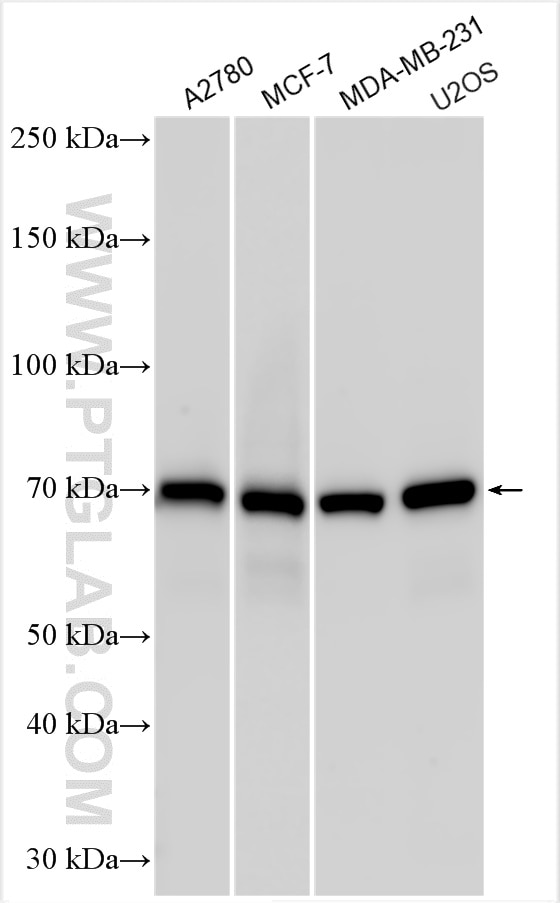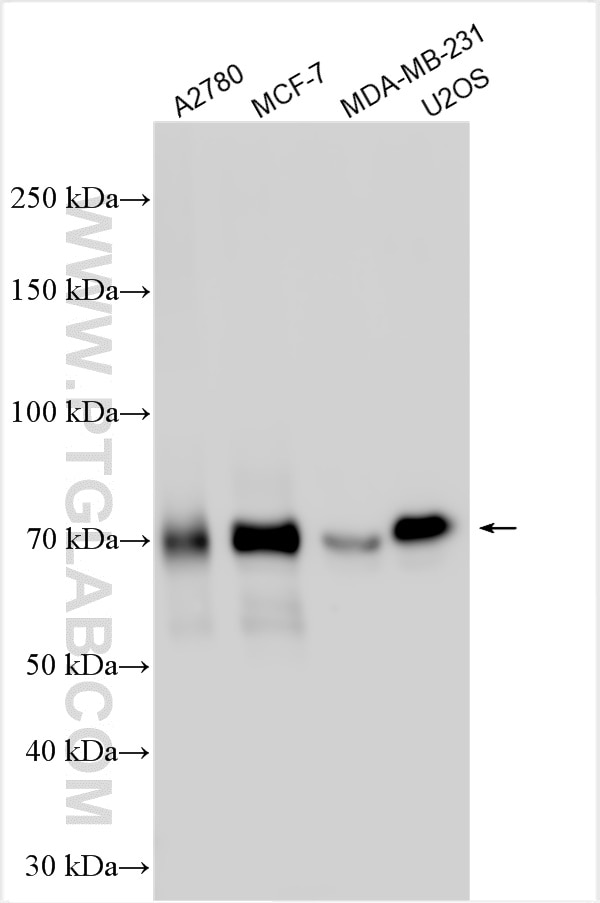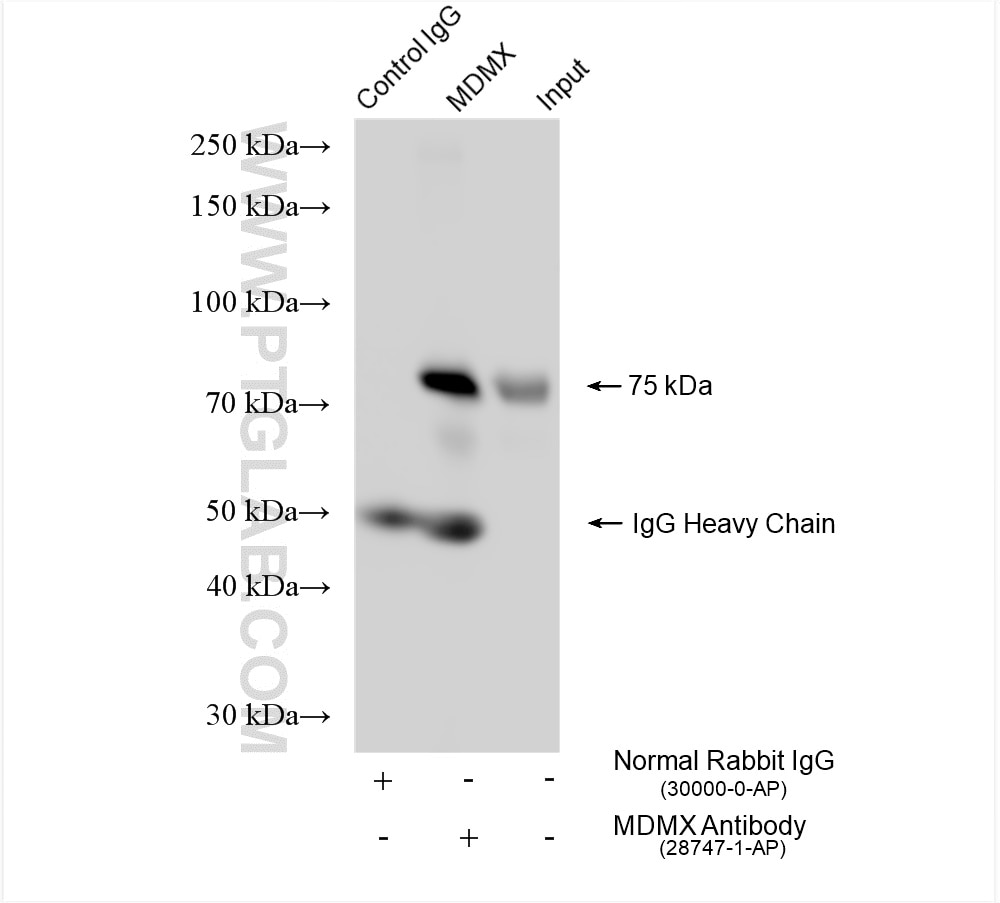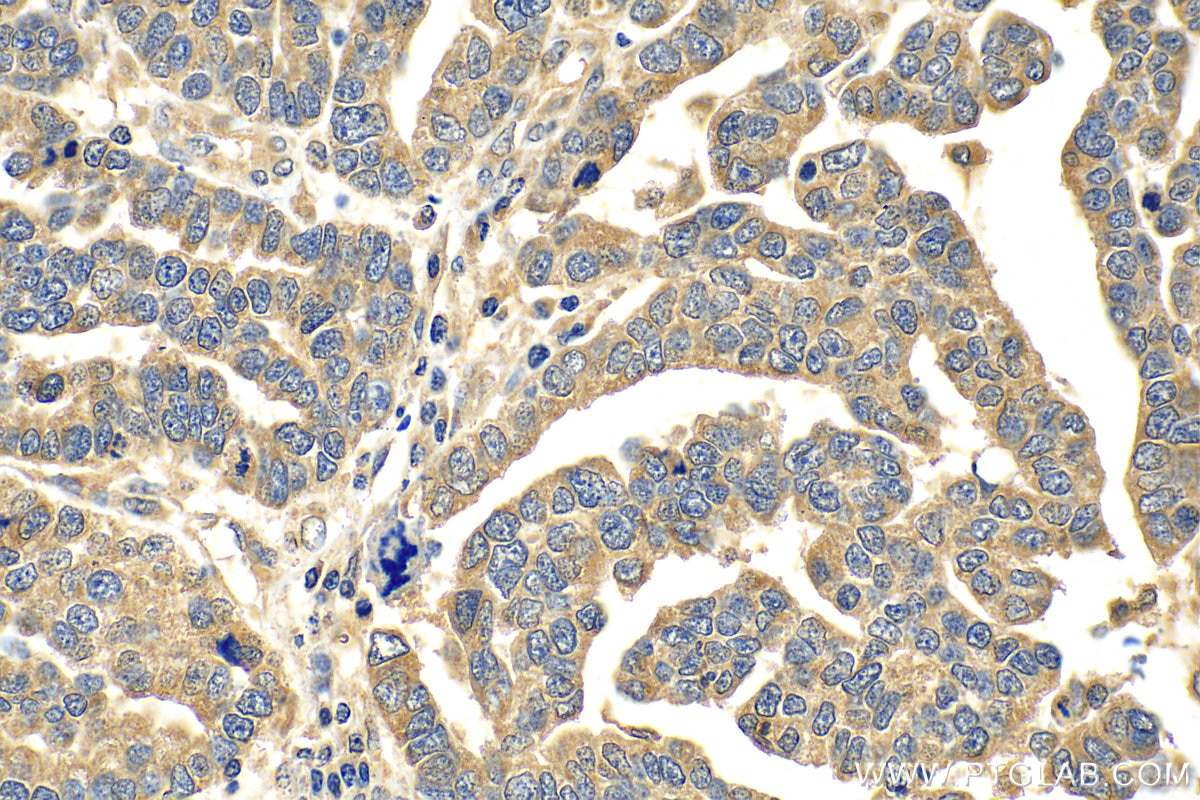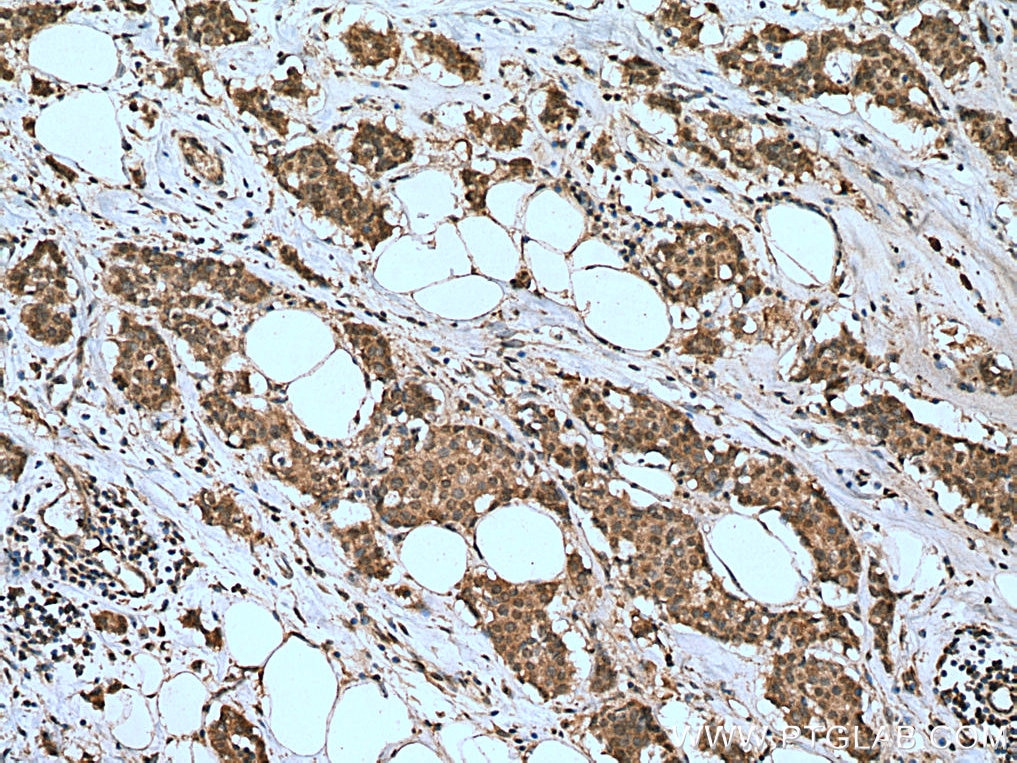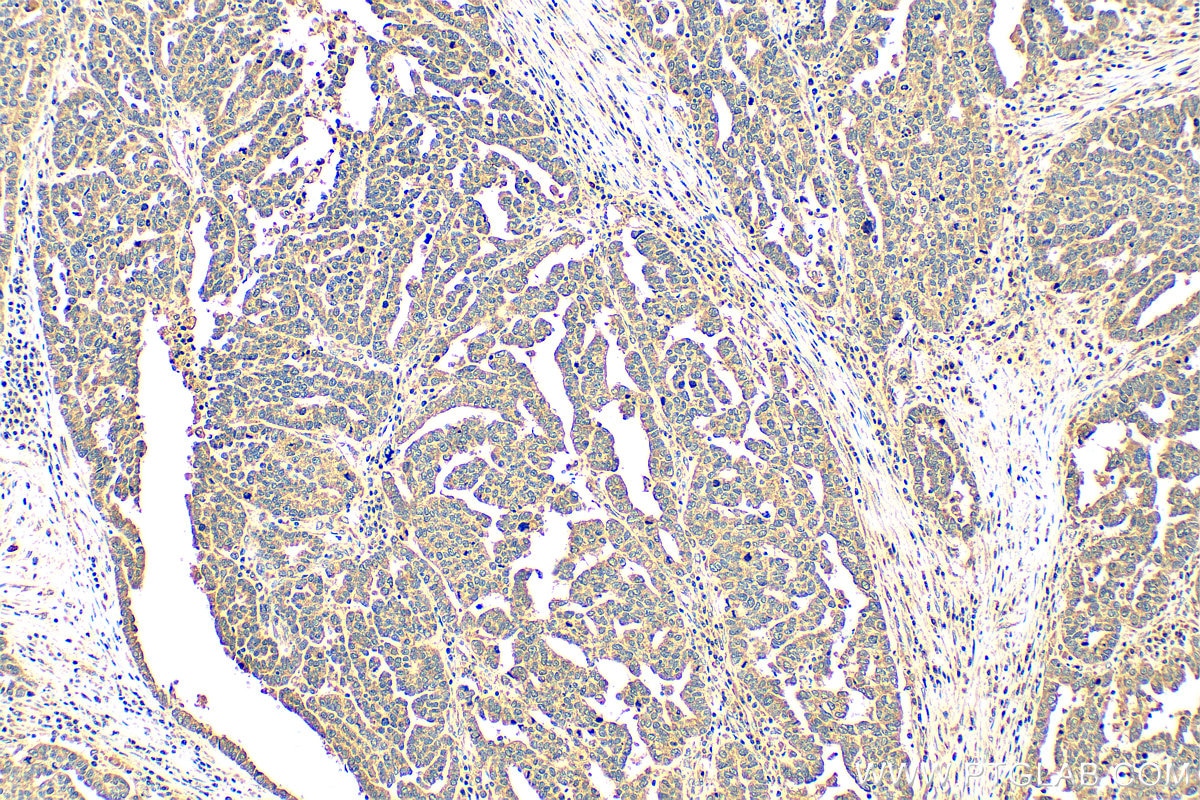Anticorps Polyclonal de lapin anti-MDMX/MDM4
MDMX/MDM4 Polyclonal Antibody for WB, IHC, IP, ELISA
Hôte / Isotype
Lapin / IgG
Réactivité testée
Humain
Applications
WB, IHC, IP, ELISA
Conjugaison
Non conjugué
N° de cat : 28747-1-AP
Synonymes
Galerie de données de validation
Applications testées
| Résultats positifs en WB | cellules A2780, cellules MCF-7, cellules MDA-MB-231, cellules U2OS |
| Résultats positifs en IP | cellules MCF-7, |
| Résultats positifs en IHC | tissu de tumeur ovarienne humain, tissu de cancer du sein humain il est suggéré de démasquer l'antigène avec un tampon de TE buffer pH 9.0; (*) À défaut, 'le démasquage de l'antigène peut être 'effectué avec un tampon citrate pH 6,0. |
Dilution recommandée
| Application | Dilution |
|---|---|
| Western Blot (WB) | WB : 1:2000-1:12000 |
| Immunoprécipitation (IP) | IP : 0.5-4.0 ug for 1.0-3.0 mg of total protein lysate |
| Immunohistochimie (IHC) | IHC : 1:50-1:500 |
| It is recommended that this reagent should be titrated in each testing system to obtain optimal results. | |
| Sample-dependent, check data in validation data gallery | |
Applications publiées
| WB | See 2 publications below |
Informations sur le produit
28747-1-AP cible MDMX/MDM4 dans les applications de WB, IHC, IP, ELISA et montre une réactivité avec des échantillons Humain
| Réactivité | Humain |
| Réactivité citée | Humain |
| Hôte / Isotype | Lapin / IgG |
| Clonalité | Polyclonal |
| Type | Anticorps |
| Immunogène | MDMX/MDM4 Protéine recombinante Ag30456 |
| Nom complet | Mdm4 p53 binding protein homolog (mouse) |
| Masse moléculaire calculée | 490 aa, 55 kDa |
| Poids moléculaire observé | 70-76 kDa |
| Numéro d’acquisition GenBank | BC067299 |
| Symbole du gène | MDMX/MDM4 |
| Identification du gène (NCBI) | 4194 |
| Conjugaison | Non conjugué |
| Forme | Liquide |
| Méthode de purification | Purification par affinité contre l'antigène |
| Tampon de stockage | PBS with 0.02% sodium azide and 50% glycerol |
| Conditions de stockage | Stocker à -20°C. Stable pendant un an après l'expédition. L'aliquotage n'est pas nécessaire pour le stockage à -20oC Les 20ul contiennent 0,1% de BSA. |
Informations générales
MDM4 is also named as MDMX. It inhibits the activity of the tumor suppressor p53 by primarily cooperating with the p53 feedback regulator MDM2. MDM4 resides mostly in the cytoplasm, but can be recruited to the nucleus by MDM2.(PMID:16511572). The predicted mass of the protein is 54 kDa, while the observed mass is 70-80 kDa, a difference which stated is probably due to phosphorylation or other posttranslational modification(PMID:9226370, 28097652). It can be ubiquitinated and degraded by MDM2(PMID:16163388). It has 5 isoforms produced by alternative splicing.
Protocole
| Product Specific Protocols | |
|---|---|
| WB protocol for MDMX/MDM4 antibody 28747-1-AP | Download protocol |
| IHC protocol for MDMX/MDM4 antibody 28747-1-AP | Download protocol |
| IP protocol for MDMX/MDM4 antibody 28747-1-AP | Download protocol |
| Standard Protocols | |
|---|---|
| Click here to view our Standard Protocols |
Publications
| Species | Application | Title |
|---|---|---|
Cancer Sci SNRPB2 promotes triple-negative breast cancer progression by controlling alternative splicing of MDM4 pre-mRNA | ||
J Med Chem Design of Murine Double Minute 2 Proteolysis Targeting Chimera Degraders with a Built-In Tumor-Targeting Ability |
